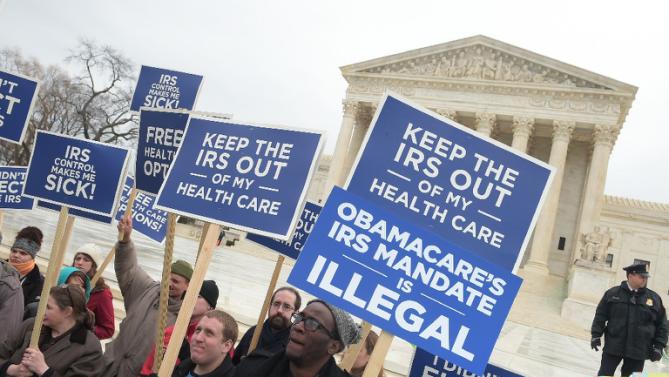Don’t Cry for Subsidies: Thoughts on King v. Burwell

Don’t Cry for Subsidies: Thoughts on King v. Burwell
By: Patrick Hedger-Policy Director, American Encore
Any day now the Supreme Court is set to hand down its decision on King v. Burwell, a case that challenges the legality of billions of dollars worth of federal tax subsidies handed out to millions of people who signed up for health insurance on the federal exchange under ObamaCare.
The case stems from the fact that ObamaCare, as written and described by its self-immolating architect Jonathan Gruber, says that federal tax subsidies may only be given out to those who purchase plans on health insurance exchanges established by a state government. In an effort to stymie the implementation of the unpopular law, most states opted not to establish an exchange. In response, the federal government created its own exchange, of particular notoriety given its catastrophic glitches in terms of both number and size, to service these states. The IRS, the chief agency responsible for ObamaCare’s insurance mandate enforcement, then began to issue subsidies to the exchange customers in these states. According to the letter of the law, the IRS technically broke the law in doing so.
The question is whether or not agencies can decide for themselves what Congress “meant” to say versus what is actually written in the law. Even so, in this particular case ObamaCare’s mad scientist Dr. Gruber made it clear that Congress meant to use the subsidies as a carrot in order to coerce states into opening exchanges.
The point is, if the Supreme Court rules in the way that it obviously should, millions of people could lose their insurance subsidies, putting the entire burden of funding their plans on their own shoulders. This sounds awful and plenty of politicians on both sides are panicking about this probable outcome. However, the truth of the matter is that eliminating billions in subsidies for millions of people is probably the best thing that could ever happen in the effort to secure more affordable healthcare in the future.
ObamaCare’s formal name is the Affordable Care Act. The only way this massive, intricate, and multifaceted law actually lives up to that name is through those subsidies. “Affordable” in the mind of ObamaCare’s proponents actually translates into just hiding the real costs from some people and shoveling them onto others. Hooray.
While subsidies may be a good thing for some people, they are pretty much awful for everyone else. Not only do the unsubsidized get stuck with the bill, the subsidies also drive up the cost of everything else. Now, quick-thinking supporters of ObamaCare will say, “Hey but that’s how the old system worked when the uninsured just went to the hospital!” To that I say, touché! However, you just admitted that ObamaCare has barely changed how a flawed system works. Oops.
Subsidies are bad because they guarantee payment at some price. So what does that mean? It means that the price will never fall below that guarantee. If someone is selling widgets, and the government promises it will help pay up to $100 per widget, then the price of widgets will never be $99. In fact, if you were willing to pay $50 per widget before the subsidy, the government just created an incentive for widget producers to raise their prices up to $150 a widget. Then you go back to the government and complain widget prices have gone up, so the government then promises you a $150 subsidy and the vicious cycle begins.
If this sound ridiculous just look at the other huge sector of the economy that progressives like to claim is a “right” and have thus instituted massive government intervention in: higher education.
The government now guarantees low-interest loans to pretty much any student that asks. The result is that tuition prices have absolutely skyrocketed. If every student is guaranteed $100,000+ in low-interest loans from the government, where is the universities’ incentive to keep tuition below $25,000 a year for a four-year program?
We’re already seeing this happen in the health insurance market. To the unfortunate surprise of many of their policy holders, plans under the “Affordable” Care Act are facing double-digit percentage rate increases this year.
The only thing that will drive the price of healthcare and health insurance down is if people actually see and feel the true costs. Hiding the cost of health insurance just promotes inefficient decision-making. You never spend someone else’s money as wisely as you spend your own. Subsidies get in the way of this very fundamental market function.
Certainly there are a lot of other things putting upward pressure on prices in ObamaCare that need to go away as well. Minimum standards for insurance plans that are beyond what people need for basic care don’t help and don’t allow prices to fall under market pressure. In addition, we need to reduce regulation in the healthcare sector in order to get away from the insurance model altogether. Talk about hiding the real cost…
Those are topics for another day. But the simple fact is that subsidies are exacerbating all the problems we already had with the healthcare sector. It should be welcome news if they are struck down.







